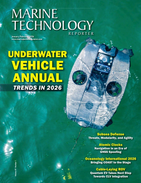Find the Best Marine Technology School
As any other question involving superlatives, the answer depends on your expectations, financial possibilities and proximity to your home town. If you are one of the lucky ones living nearby a harbor city or anywhere close to the ocean, you can eliminate the latter in your search for a good marine technology school.
Many students nowadays are attracted to study in a marine technology school, as the importance of marine sciences has increased exponentially within the past few years, as well as the remuneration. Despite the economic challenges, companies invest millions of dollars in oceanic research and technology, in order to find cheaper, cost-effective means of resource extraction, freight transportation, boost the challenges for avid tourists and ocean lovers and find alternative solutions for the pressing increase in world’s populations, followed by an accelerated decrease in land resources, such as building space and food.
A marine technology school can also be the perfect academic path for all those concerned by the serious problems of our modern society: unemployment, violent crime, replacement of humans by technology, overpopulating the continental land, and the decline of Earth's ecosystems. Leaving the philosophical and political considerations aside, those attending a marine technology school desire to find practical, technological research, development and application of workable solutions.
By using innovative technological means on social conscience, educational incentives and consistent application of the best things that science and technology can offer directly to the social system, the graduates from marine technology schools can bring their input to developing and consolidating the already existing plans for social renewal where people, technology and nature will coexist in a steady, strong, dynamic and long lasting equilibrium. They will research methods of technologically optimizing scientific applications in all arrays of life, from real estate underwater and floating, mobile human habitats, to methods of deep-sea exploration, resource extraction or minimizing the human impact on marine ecosystems.
We will therefore present a short list of the best marine technology school options in the US, adding that all those interested in pursuing a career in marine science field can offer you even greater financial rewards if you complete your studies with a master’s degree.
The United States Naval Academy is a public marine technology school, with an activity of over 150 years and during all this time, it has educated more than 60,000 young people, preparing them for successful careers in America’s Naval Service. It has 1200 available spots annually, and is open to applicants from all over the country. The Naval Academy studies expand over an interval of four years, training students in the Naval Academy Honor Concept, enforcing strict daily and weekly schedules, combining technical applications with athletics and extracurricular activities, offering regular active-duty benefits and payment proportional to the midshipmen’s rank.
The Fisheries and Marine Institute of Memorial University of Newfoundland is another great option of marine technology school. Unlike the United States Naval Academy, it does not focus on Armed Forces training, but mainly on technical aspects of marine sciences, such as ocean mapping technology and developments, deep-seas observing systems, ocean instrumentation for large ships and offshore facilities, and underwater intervention activities, performed by both human and machines. The Marine Institute prepares students to develop and work with technology such as ocean divers, remotely operated vehicles (ROVs), autonomous underwater vehicles (AUVs), and water gliders. Graduating from the Memorial University of Newfoundland can offer you certifications as ROV technician, a bachelor in ocean technology, ocean instrumentation specialist, ocean mapping specialist and a master in technology management.
The Princeton Review of best colleges includes the Webb Institute, located in Crescent Beach Road, Glen Cove, NY, as a leading marine technology school in US. The institute was founded in 1889 and has been designing ocean ships ever since, from personal yachts, navy destroyers to cruise liners. The undergraduate institution offers only one academic option – the double major in Marine Engineering and Naval Architecture. It offers 80 available spots each year, however all students accepted to the Webb Institute get a full-tuition scholarship that includes all basic costs of living and studying – accommodation, board, theoretical documentation, laptop and applied software.
The United States Coast Guard Academy (USCGA), located in Mohegan Ave. New London is another marine technology school listed by the Princeton Review among the top-notch marine schools in the US. It is the smallest of all five federal service academies, and offers a 5-year naval military training. It has less than 300 open spots available each year and the competition among applicants often reaches a 10:1 ratio. Besides the compulsory technical training, it also offers the possibility of further research in one of the five additional research institutes in the campus – The Center for Scholarship and Innovation, Maritime Policy, Enhanced Performance, Intelligence, and the Center for Teaching and Learning. Included in the College of Engineering at University of Michigan, the Naval Architecture and Marine Engineering specialization is an excellent marine technology school, which offers a bachelor program focused primarily on the conceptual design, functionality, structure and life cycle management of marine technology equipment, including marine vehicles, structures, and complex systems. The department has been established in 1879 and offers extensive facilities to its students, such as the MHL (Marine Hydrodynamics Laboratory), the MRELab (Marine Renewable Energy Laboratory), OCEL (Ocean and Coastal Engineering Laboratory), PeRL (Perceptual Robotics Laboratory), UGMLD (Undergraduate Marine Design Laboratory) and one large reference room.
The department of Aerospace and Ocean Engineering from Virginia Tech College of Engineering is another excellent marine technology school that has been founded in 1872 and focuses on the development and design of aerospace and ocean vehicles. It offers 400 undergraduate and 100 graduate spots annually and the possibility of continuing the university education with 25 masters and 10 doctoral studies programs. If you consider applying for a spot at this university, you can choose from a large array of specializations, such as aerodynamics, hydrodynamics, the science of materials, structural mechanics, energy systems or multidisciplinary design optimization. The campus includes the Virginia Center for Autonomous Systems (VaCAS) research center, where students can enroll and contribute actively to the research and development of technological applications in all four environments – water, air, land and space.















 February 2026
February 2026



